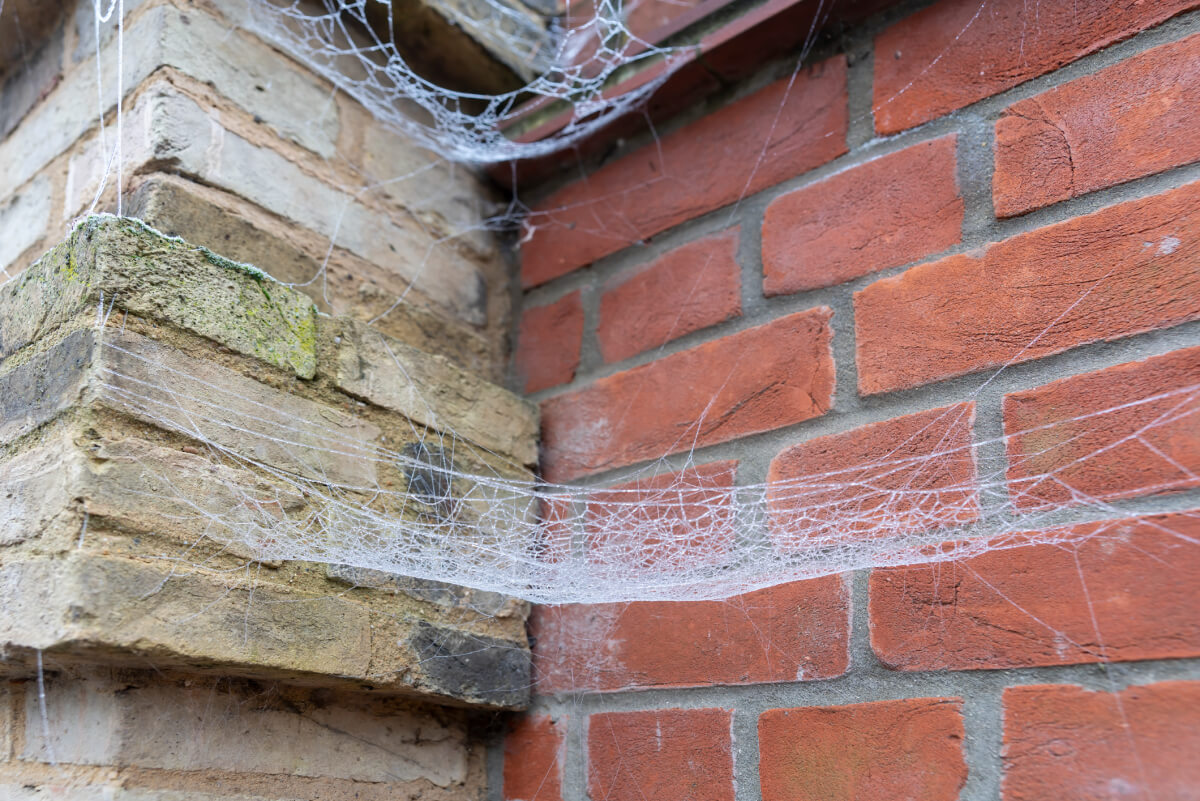
Spiders are generally harmless insects that prefer to avoid humans and prey on smaller insects. However, for many homeowners, spiderwebs and all pests, in general, are an eyesore that should be dealt with often. There are also homeowners who have arachnophobia or fear of spiders, feeling the need to get rid of them as soon as possible.
So how do you prevent spider webs from forming outside your house? You have several options ranging from natural remedies to weekly cleaning practices to prevent spiders from settling around your home. Rather than getting rid of webs every time they come, it’s much better to take steps to ensure spiders avoid building their webs there in the first place. Here are a number of ways to prevent spider webs outside of your house.
Spiders use webs to capture prey. They trap smaller insects that are caught in their web and then proceed to inject venom that paralyzes them before devouring their prey. These webs take about an hour to build. While webs are intricate and have high tensile strength, these are easily broken especially by natural elements. Some spiders repair damaged webs, while other spiders build new webs every day. This can lead to a build-up of webs outside your home.Here are a few ways to prevent outdoor spiders from building webs around your home.
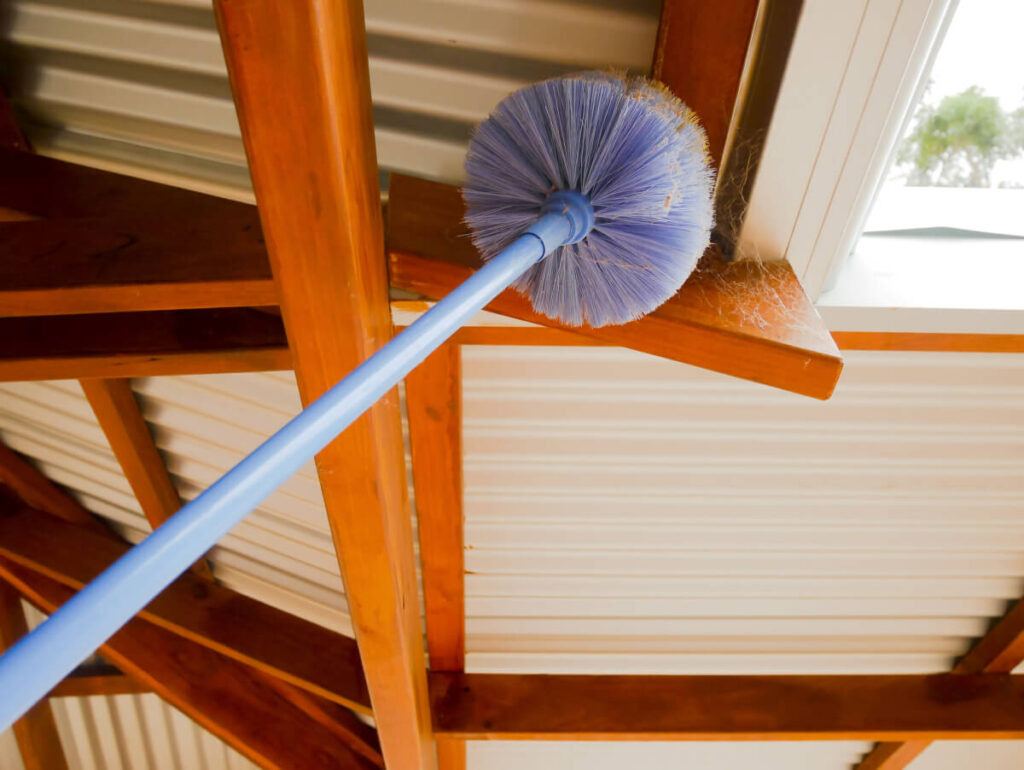
One of the most effective ways of preventing spiders from building webs around your home’s exterior is to follow a regular cleaning schedule. Webs are common in areas like under the roofs of porches and verandas, under your balcony, and other hard-to-reach places with low traffic.
When you use a vacuum cleaner or dust these outdoor areas frequently, you’re preventing spiders from laying eggs, stopping nymphs from growing, and making the area unsuitable for spiders to settle down and form webs. Although it takes spiders around an hour to build a spider web, regular cleaning can discourage them from settling in the area and finding places away from your home to build their webs.
If you come across a black widow spider or a brown recluse spider, contact us immediately. Seeing this species of spider can be dangerous to humans as its bites can cause intense pain not limited to the bite area, so it’s best that a professional pest control company gets rid of it. But if you see a small common spider, it’s best to get rid of it as soon as possible. Where there’s a spider, there’s a chance for it to reproduce and cause a spider infestation. If it’s on your body, avoid crushing it against your skin since this can cause spider bites that can irritate and cause secondary bacterial infection. The most humane solution is to trap it in a jar and release it far away from your home.
You might think we mentioned this already, but this time we’re talking about the outside and inside of your home and how it can attract other pests, which can cause a spider infestation. Spiders are opportunistic predators and prey on smaller insects like flies, mosquitoes, and even small vertebrates like lizards. These pests can be attracted to dirty homes that are rarely cleaned, so a home that attracts flies and other pests can indirectly attract more spiders.
Make sure your garage and yards are free from outdoor clutter. Spiders take shelter in piles of junk that are rarely touched or moved, so you might be providing them with a place to thrive.
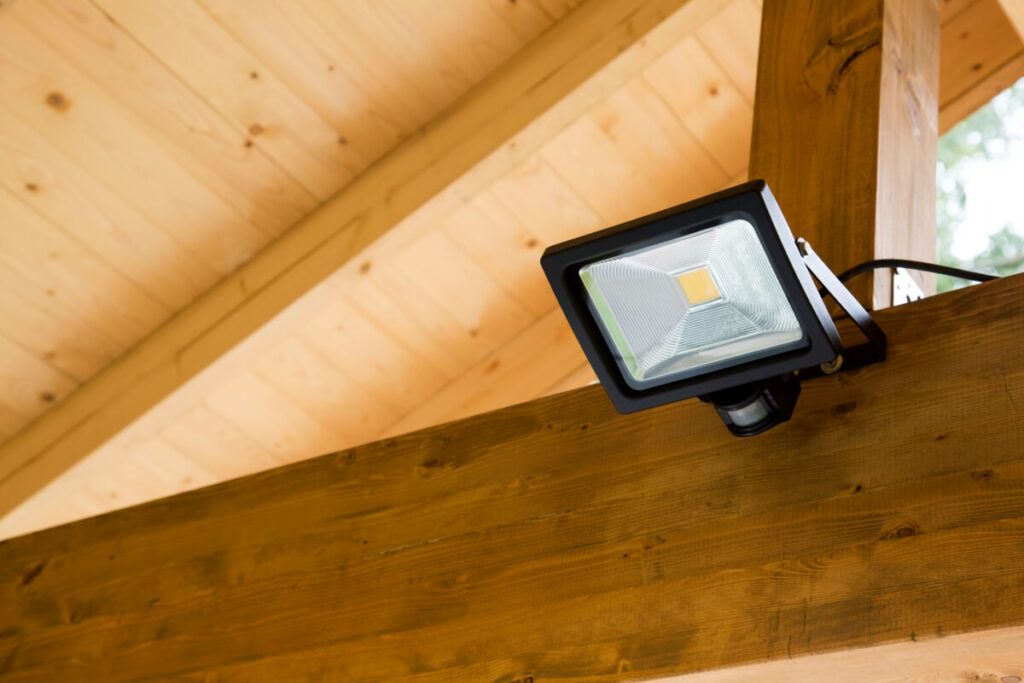
Insects like moths, winged ants, and winged termites are attracted to bright lights, which may make spiders want to build webs strategically close to your outdoor lighting fixtures to increase the chances of capturing prey.
Turn off your outdoor lights in the morning. Turning off your outdoor lights at night may seem like a solution to some, but to others, this may seem like a security hazard against burglars who might think no one is home or use the lack of lighting to snoop through your property without neighbors noticing.
One solution is to install smart light fixtures as your porch light so that it can automatically turn your lights on and off. Another option is to use motion-sensor lighting that only lights up when it senses someone is on the lot, reducing insects, spiders, and trespassing people. If possible, keep your outdoor lighting fixtures at a distance from your windows and doors to keep pests from entering your home.
Spiders are repelled by certain substances. While cleaning your home’s exterior, spray these in places where spiders are likely to build spiderwebs.
Spraying regular pest repellent products in potential breeding grounds prevents spiders from settling there. You may also find cobweb eliminators in your hardware store. You can use these sprays indoors and outdoors to prevent spiders from attaching their webs to these surfaces.
Dead leaves, overgrown lawns, uncovered compost bins and trash cans, and clogged drains are breeding grounds for pests, which can attract spiders to settle down outside your home. Keeping your yard clean not only makes your house look more presentable, but it prevents pests from coming to your home and attracting spiders.
Spiders like laying their eggs in dark corners of your home with lots of humidity. This can include your garage, patio, veranda, and front porch. If you see signs of spider eggs, vacuum these immediately to prevent more spiders from crawling around your home.
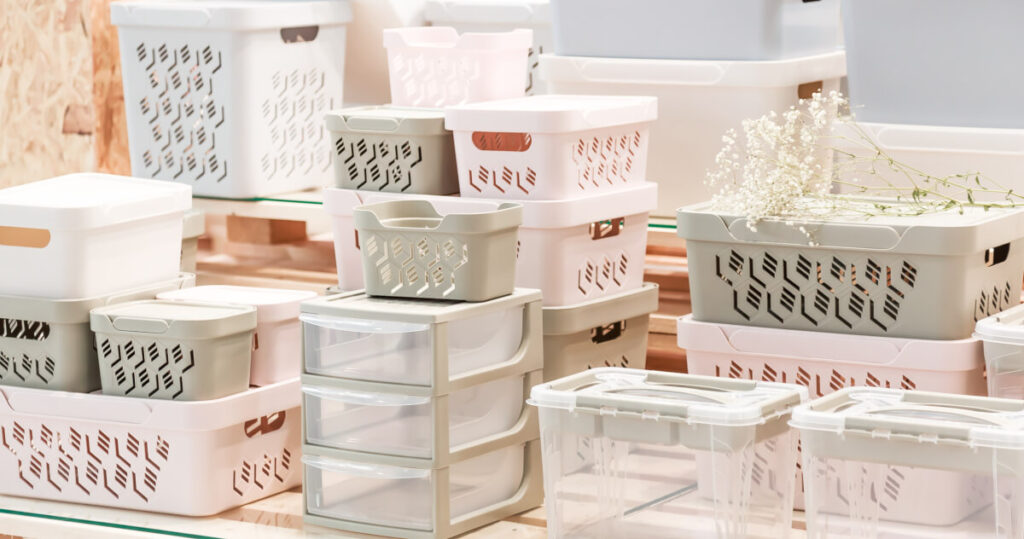
If you’ve been storing some of your household’s items in the garage with cardboard boxes, now may be a good time to replace cardboard with plastic storage boxes. Not only are these more durable, but they’re more air-tight and can prevent spiders from crawling in and making these boxes their new home.
Invest in quality garbage cans with tight lids that can’t easily be removed by outdoor elements like wind, pests, and stray animals. Keep your garbage can a few feet away from the exterior walls of your home, especially far from windows and doors. Your garbage cans can attract flies, which can lead spiders to build webs nearby to trap them.
Rather than dumping all your garbage into one bin, practicing waste segregation and green waste disposal can result in cleaner, more organized bins. Separate your biodegradables from non-biodegradable waste, and then separate dry waste from wet waste. As much as possible, limit your wet waste or wrap them in a sealed trash bag to prevent contamination and attracting flies.
Spiders are attracted to other pests, so if you’ve got a pest infestation at home, it’s highly likely that spiders will follow. Hiring a professional exterminator to get rid of the problem gets rid of both pests.
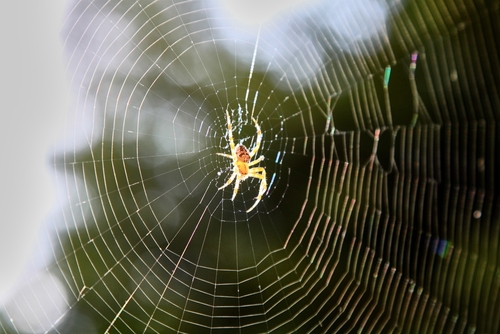
Apart from the widow spiders and recluse spiders, most of the other spiders in North America are generally harmless to humans. Spiders prey on smaller insects and vertebrae and opt to run and hide from humans. Spider bites are actually a last resort for them. And even if they do bite you, the chance of an allergy is relatively low. You might not even notice a bite, or might have to deal with a minor red bump for a week or two. Simply wash the bite area with warm water and soap to prevent secondary bacterial infection.
Most homes have spiders, and this poses very little threat. However, those with arachnophobia or a severe fear of spiders may feel uncomfortable in their own home, which is why there’s a need to get rid of spider webs and prevent spiders from creating webs outside your home. Spider webs and cobwebs can also be an eyesore to those who want to keep their homes clean.
While spiders are common and pose little threat to you and your home, a high number of spiders in and out of your home suggests an underlying pest infestation. Many spiders may be thriving in your home because there are plenty of flies, bugs, insects, and other small pests serving as prey. This is a sign that you might need to get your house checked, as you may have something worse than just a few spiders spinning their webs.
Spiders are generally harmless, but spider webs can ruin your home’s aesthetic and may be a sign of other pests breeding inside and outside your home. Through these suggested methods, you can reduce the number of unsightly spiderwebs and cobwebs hanging around your home.
While you can prevent spider webs outside of your home, we can take care of the spiders and other pests plaguing your home. At Yale Pest Control, our team of professionals can conduct a thorough inspection and provide the right treatment to protect your family from other pests that can pose a bigger threat to you and your family’s health. Contact us today to request a free quote.